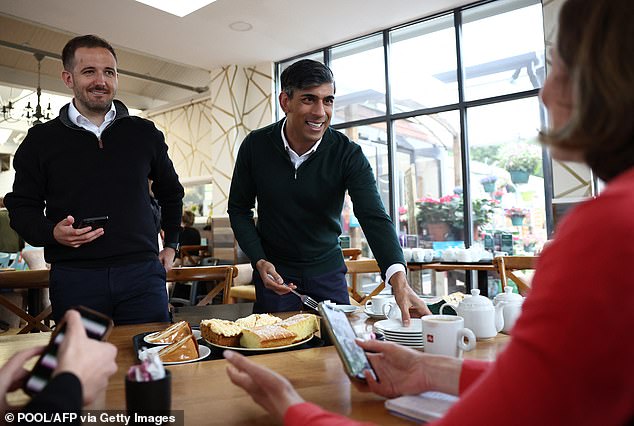Prime Minister Rishi Sunak has faced substantial backlash in the wake of his early departure from the 80th anniversary D-Day commemorations in Normandy.
This move, which he has publicly apologized for, has caused significant friction within his election campaign.
Despite the controversy, Sunak remains steadfast in his efforts, emphasizing his commitment to the Conservative Party’s election campaign during a visit to Horsham, West Sussex, a traditional Tory stronghold.
He affirmed his dedication by stating, “I’m not going to stop fighting for people’s votes, I’m not going to stop fighting for the future of our country.”
Criticism and Apologies
Sunak’s early return from Normandy to participate in an election interview has been widely criticized. His apology, in which he expressed hope for public forgiveness, has done little to quell the speculation and unrest within his party.
Rumors of his potential resignation were swiftly dismissed by Sunak, who reinforced his resolve to lead the country through what he described as a critical moment.
He highlighted the importance of the election, citing the need to continue efforts toward economic stability and a secure future for all.
Farage’s Provocative Comments
The campaign faced further complications when Suella Braverman suggested welcoming Nigel Farage into the Conservative Party.
This proposal was met with stark opposition from moderates within the party. Farage, known for his divisive rhetoric, capitalized on the D-Day debacle by criticizing Sunak’s patriotism and understanding of British culture.
He provocatively suggested that the Conservatives could be reduced to a negligible number of MPs if Sunak were to resign. Despite these claims, Sunak’s aides and supporters maintain confidence in his leadership and campaign strategy.
Internal Party Dynamics
The suggestion of integrating Farage into the Conservative fold exposed internal party tensions. Braverman’s comments prompted a blunt rejection from former Justice Secretary Robert Buckland and other senior party members.
They emphasized the need for the party to remain inclusive without compromising its core values.
The notion of Farage’s entry was further dismissed by Business Secretary Kemi Badenoch, who voiced her unwillingness to serve alongside him.
Campaign Strategies and Future Plans
In response to the controversy, Sunak aims to reboot the Conservative campaign with a focus on tax policies and economic stability.
Upcoming announcements are expected to include significant manifesto pledges, such as potential cuts to national insurance.
Sunak’s continued media engagement, including a BBC Panorama interview, underscores his determination to connect with voters and clarify his position.
Labour and Opposition Reactions
Labour and other opposition parties have seized the opportunity to criticize Sunak’s campaign missteps. Labour’s justice spokesman, Shabana Mahmood, condemned Farage’s comments as “dog whistle” politics, suggesting they were intended to subtly appeal to racist sentiments.
Meanwhile, Labour is set to launch its childcare plan, adding to the policy debates dominating the election campaign.
Conclusion
Rishi Sunak’s election campaign faces significant challenges following the D-Day apology and Nigel Farage’s controversial remarks.
Despite the internal and external pressures, Sunak remains committed to his campaign strategy, seeking to guide the Conservative Party through a pivotal moment in British politics.
His focus on economic stability and future security continues to be the cornerstone of his campaign as he navigates these turbulent times.
World News
TDPel Media
This article was published on TDPel Media. Thanks for reading!Share on Facebook «||» Share on Twitter «||» Share on Reddit «||» Share on LinkedIn
